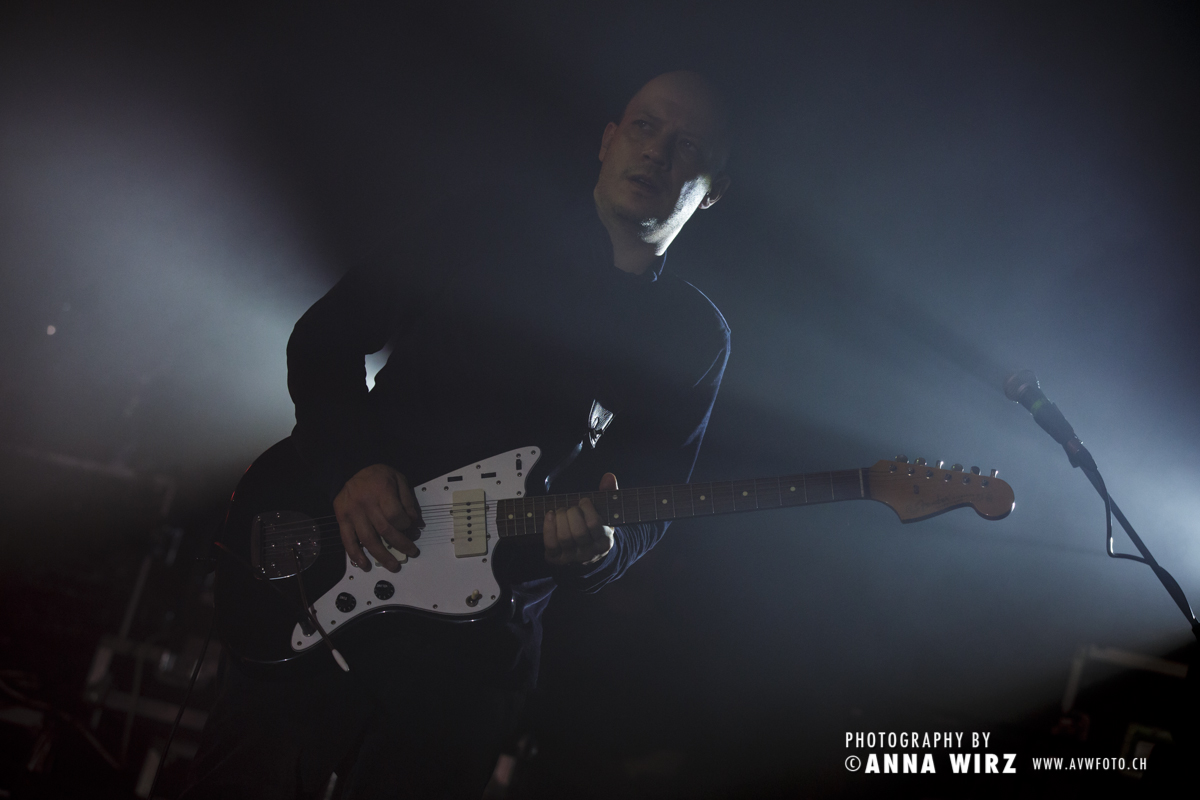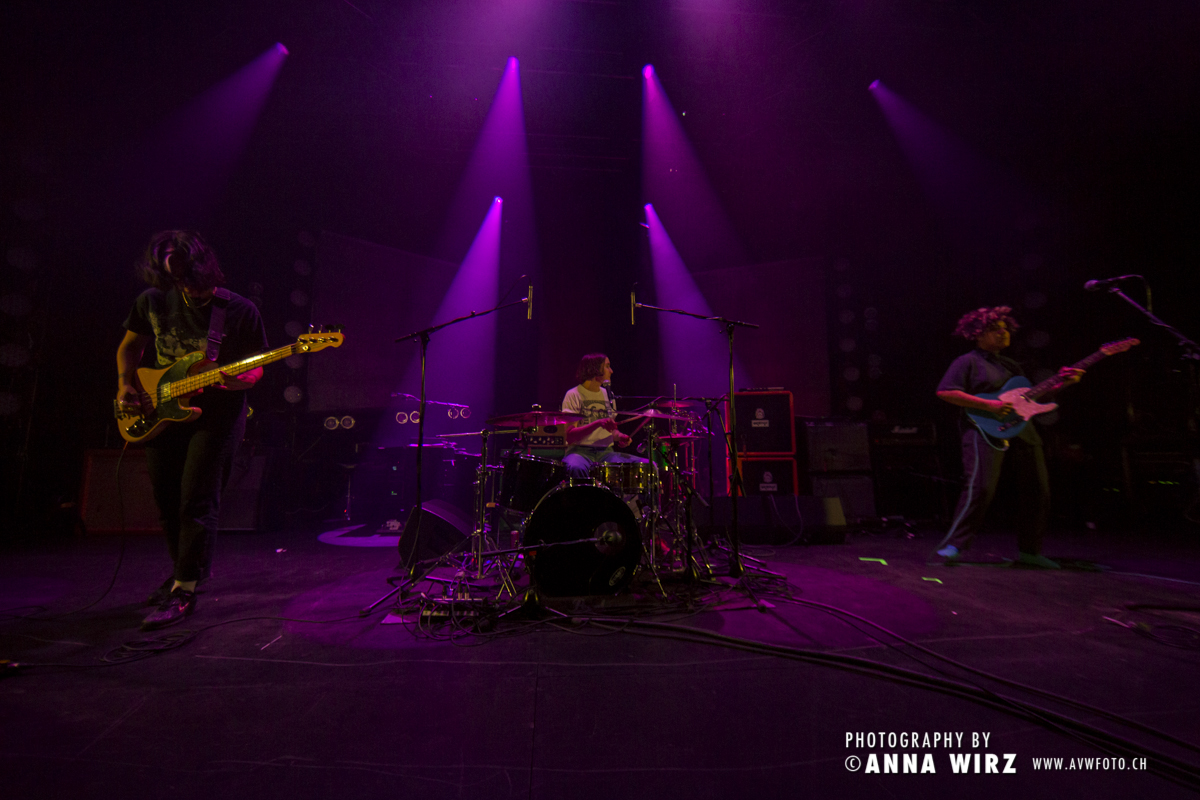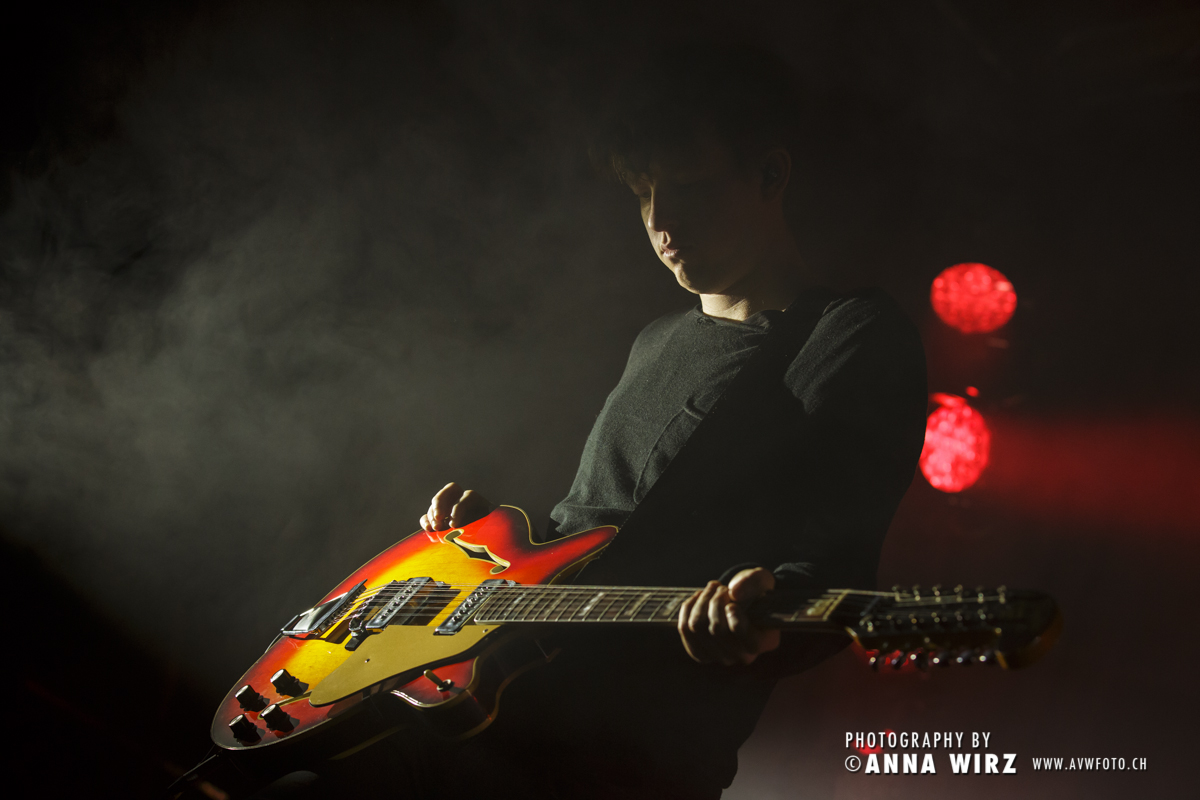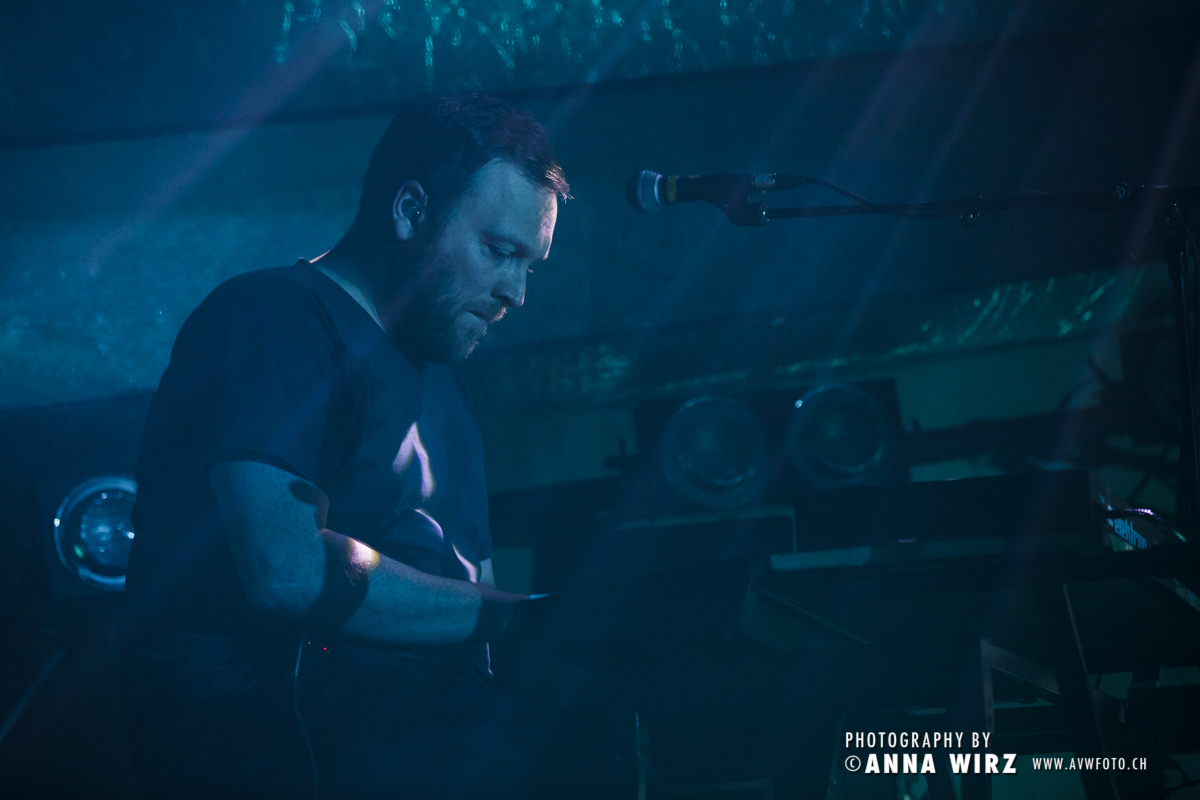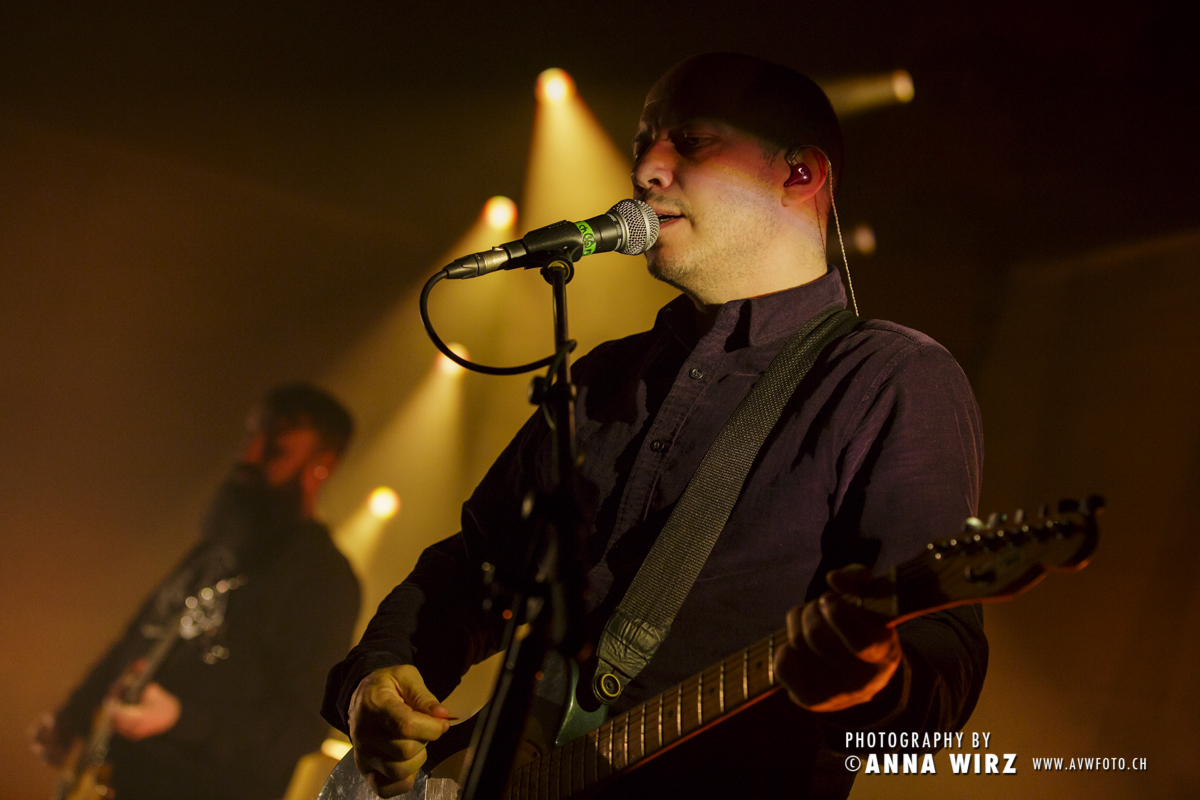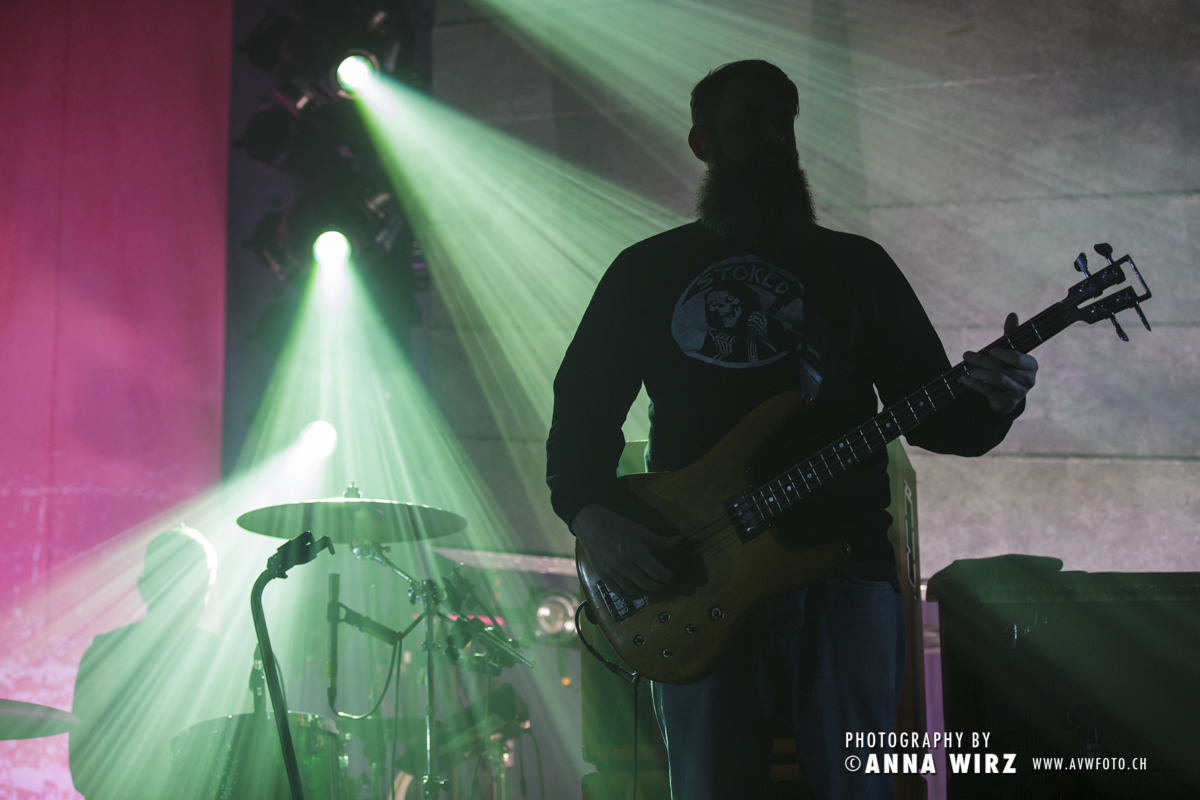Mogwai in Basel - 26 October 2017
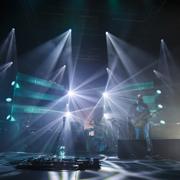
Basel's Kaserne was witness to a glorious display of earth-dividing and soul-searching music from Scottish post-rock outfit Mogwai. Having been a pioneer of the (still today) little-known genre in the mid-nineties, the band continues to enjoy critical recognition and commercial success, with several stints composing soundtracks for film and television.
Mogwai's latest album Every Country's Sun, released in May this year, follows the band's recent trajectory into music with a stronger electronic focus, away from their noise rock roots (see 1997's debut: Mogwai Young Team). And yet they're unafraid to bring the heavier side of post-rock to the fore when everyone's had enough of the morose melancholia induced by what could be the soundtrack to an emotional independent film full of characters staring into the middle distance.
Currently touring this new album around Europe, their show was opened by fellow Glaswegians Sacred Paws - an upbeat indie pop duo comprising former Golden Grrrls members and presently signed to Mogwai's self-run label Rock Action. The precise continuity of guitarist Rachel Aggs' identically pastel blue telecaster, cable and socks reflected the surprisingly lush sound produced by what would seem like a sparse band configuration. The drums, vocals and guitar were left relatively unprocessed by effects such as the reverbs and delays so favoured by the main act to come.
With concise and taut songs from their latest album Strike A Match, Aggs and drummer/vocalist Eilidh Rogers conjured up a suburban kitchen sink dream of the beach and freedom, favouring lush compositions over lush effects-laden sounds and combining fast and fervent retro riffs, bubbly beats and heartfelt harmonies (apologies for the alliteration overkill) to great effect.
With punkier moments reminiscent of Mal Blum's recent musical outings (see You Look A Lot Like Me), and the lighter faster ones taking on an almost Animal Collective quality (see Sung Tongs), Sacred Paws managed to wake up the dream pop and bring it into the real world; American-style indie rock with a distinctly British heart.
"I think most people are not used to having no lyrics to focus on. Lyrics are a real comfort to some people. I guess they like to sing along and when they can't do that with us they can get a bit upset." - Stuart Braithwaite
After the cheery booster shot that was the support act, Mogwai set the tone of the evening to follow with their opening number, Coolverine. Taken from this year's album and released early as a single, the track comprises a classic slow-build of atmospheric synth pads and echoing guitars woven into the breakbeat drumming and fuzzy leads that signify the group's heritage-era while still feeling highly contemporary. The jump into the indie vibe of the shoegazing and lyrical Party in the Dark was as sudden and surprising as on the album itself, with Stuart Braithwaite's vocals, deliberately drowned in distortion, returning the band's sound to that of a teenage Young Team in a nineties garage.
Mogwai's first entirely instrumental album, 2008's The Hawk Is Howling, was represented by the excellently titled I'm Jim Morrison, I'm Dead - a lengthy journey into dynamic droning guitars punctuated by Barry Burns' emotional keyboard melodies. It's a track that typifies the band's latter-day take on the post-rock sound (unsurprisingly included on the 2015 retrospective triple album Central Belters). Cat Myers, the current touring replacement for Martin Bulloch on drums, provided the steady percussive shimmer that so readily suited the watery light effects projected onto the roof of the hall.
Following on from the grand conclusion of that track, the band reconfigured in what looked like an instrument-based game of musical chairs (musical instruments?) in order to take the audience back to the very beginnings of their career with Ithica 27 ϕ 9, the companion A-side of Summer. It dates back to 1996 prior to their debut album, whose sparse sound built from harmonic twangs to feedback-fuelled screeches and so strongly pointed to their early influence of Slint (late 1980s godfathers of math and post-rock, see Spiderland).
Easily one of the most emotionally powerful songs in their repertoire, Hunted By A Freak (from the not-ironically-named-at-all Happy Songs for Happy People) is another showcase for Burns' work on the keys but most of all for the vocoded singing, distorting the lyrics almost beyond comprehension and yet adding a warbled, fragile and vulnerable tone to the song reinforced by the sombre Radiohead-esque guitars. The other band members remained in their funeral composure even as the track built to its climax; the vocals, being given more space to breathe than on the album, thus expanding to fill the vast hall.
Mogwai's Rave Tapes signaled a new direction for the band's sound, Remurdered being the quintessential example; a pulsating, retro 1980s horror film-inspired piece that places the synthesiser front and centre and fits perfectly in today's Stranger Things-fuelled nostalgia for the era of John Carpenter soundtracks.
The Kaserne crowd were loving every bit of it; the stage lighting having turned an intense neon purple as the band's signature fuzzy guitars rode the waves generated by the deep and vast sawtooth synths, washing over the audience.
Returning to the new material, and hopping forward one stylistic decade, Battered At A Scramble triumphantly brought back the noisy guitars and heavy rhythm-shifting percussion for an upbeat jam that kept the energy high as touring member Alex Mackay demonstrated his considerable electric prowess, harnessing hefty chunks of feedback bent to his will - all while keeping a rather straight face (remember, post-rock makes you sad).
It's easy to focus on the negatives in life, something perhaps alluded to by Two Rights Make One Wrong (Rock Action, 2003); another intense-yet-morose outing for a band that has really nailed that particular combination, once again combining the delicate vocoder sound with a downbeat... well, beat, as Braithwaite allowed himself a relaxed albeit unsettling grin.
The hypnotic finale of one track was picked up again in the next as we came back once more to Every Country's Sun with Don't Believe The Fife, one of the most atmospheric and ambient tracks to come out of the new album. Returning to softened synthesisers and sparse electronic drumbeats, the crowd was transported to a place beyond our time, post-human, as the last light of the universe started to fade. Just as all hope seemed lost, a hopeful lead synth phrase bursts through to make way for Myers' triumphant percussion and Braithwaite's earth-shifting bass guitar as if to say yes, it is indeed the end of times but it doesn't really matter after all.
Following immediately on from this realisation came the album's eponymous track, with yet more doom and gloom and glimmers of hope strewn in. It's hard not to begin imagining scenes from films, vast landscapes, emotional reunions, as Mogwai do their thing - eschewing lyrics for raw musical emotion conveyed through building walls of sound and breaking them down again, riding the tide of destruction while whistling a sad little tune.
Into the home stretch, the penultimate pre-encore performance was that of Auto Rock, a steadily pulsing slow-build that could just as well close a show on a huge note as open an album (which it does, 2006's Mr. Beast). Mackay, Mogwai's master of all trades, assists Myers on drums by providing the sustained shimmering crescendo of the ride cymbal as Burns and Braithwaite repeat a hopeful phrase on keys and lead guitar respectively.
To give the audience a proper send-off, however, we still had the almost metallic grinding explosion of Old Poisons, again from ECS. The sheer scale, force and weight of the two-part rocker was something to behold; the soaring guitar riffs and intricate drum breaks providing the sound of the storm cloud of red light in which the musicians bathed.
After roaring applause from the crowd and gracious thankful waves in return from the band members, Mogwai of course returned to the stage to take the audience back in time to 1997 again with Helicon 1, another of their pre-Mogwai Young Team singles which, unlike Ithica, had less of a noise rock influence but rather an early crystallisation of that signature intense/morose marriage of sound and emotion that has come to define Mogwai for many of their fans.
Upon returning, Stuart Braithwaite took a seat to play a large bass this time, as the blue/green vs. red/white colour scheme of the show again indicated through the former combination that this was a contemplative and bittersweet piece.
While a mellow ending could have left everyone quietly shuffling out of the Kaserne wiping tears from the corners of their eyes, Mogwai opted to use the air pressure from their amplifiers to blow dry those tears out of existence with We're No Here (Mr. Beast, 2006). The track is a tectonic shift-inducing wall of sound pierced by harmonic and distorted lead guitar stabs and riffs that attempted (and on occasion succeeded) to find the resonant frequencies of every object and body in the room, including the building itself, to bring the evening to a massive scale conclusion.
Like many a post-rock band (looking at you Godspeed You! Black Emperor), the band members vacated the stage one by one as the final drone of their final song continued moved heaven and earth. Alex Mackay was left as the last man standing, tending to his floor-bound guitar like a sculptor of sound and space, occasionally thrashing a string to keep the drone going, before leaving his instrument lying like a dying creature, its death throes being the sounds emanating and looping from within. A minute or so later, one of the other musicians came out on stage and with a stomp on a pedal, the sound was silenced and the music died.
Mogwai are perhaps to Godspeed You! Black Emperor what Muse are to Radiohead, or cinema scores are to classical music; or perhaps they deserve a category of their own, no category in fact. Many bands dislike the term post-rock due to its vague and meaningless nature, seemingly another way for music critics to pigeonhole innovative and alternative bands. But most of them have come to accept that it exists as a thematic, albeit broad, connection.
Mogwai's unique take on it, fusing noise and electronics; fuzz and reverb; bittersweet memories and intense fears; still clearly holds up today as they are undoubtedly one of the giants of this particular music scene, which the Young Team themselves helped pioneer.
- Miles Prinzen
More photos by Anna Wirz on Flickr.
Listen to Mogwai's interview with the English Show a few days before the concert.



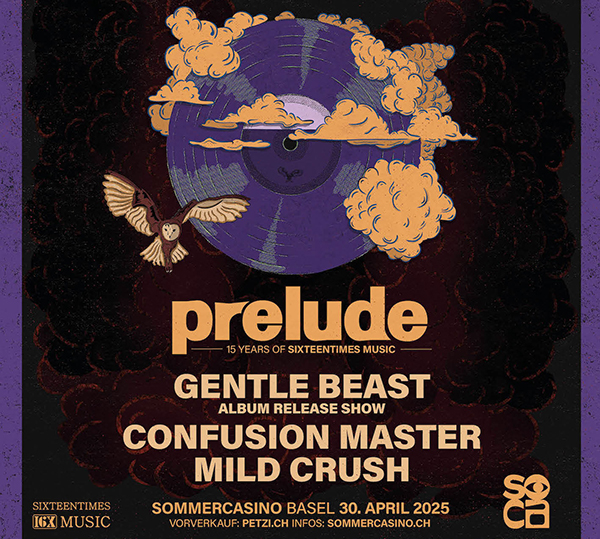 Basel stoner rock band
Basel stoner rock band 